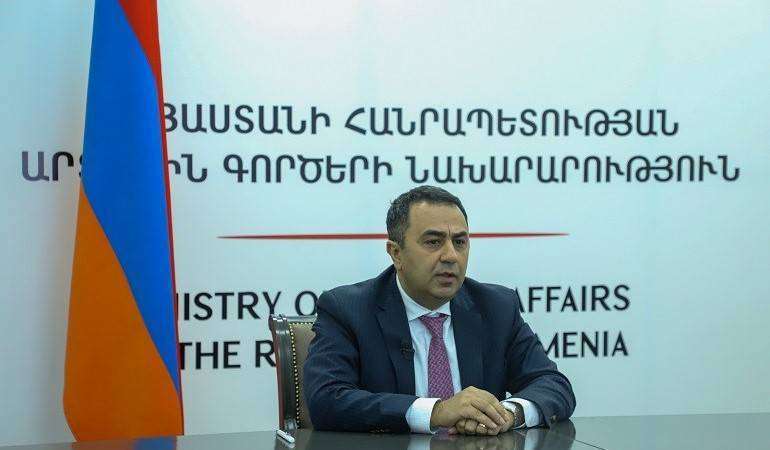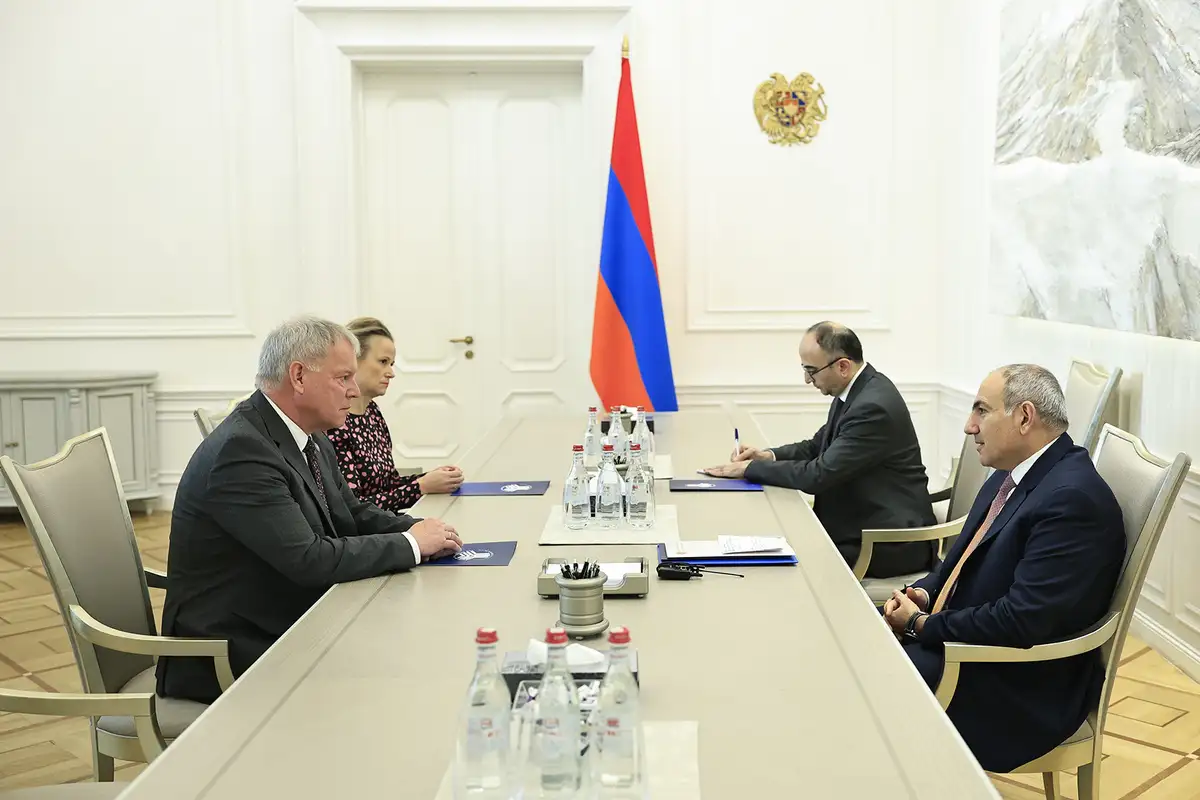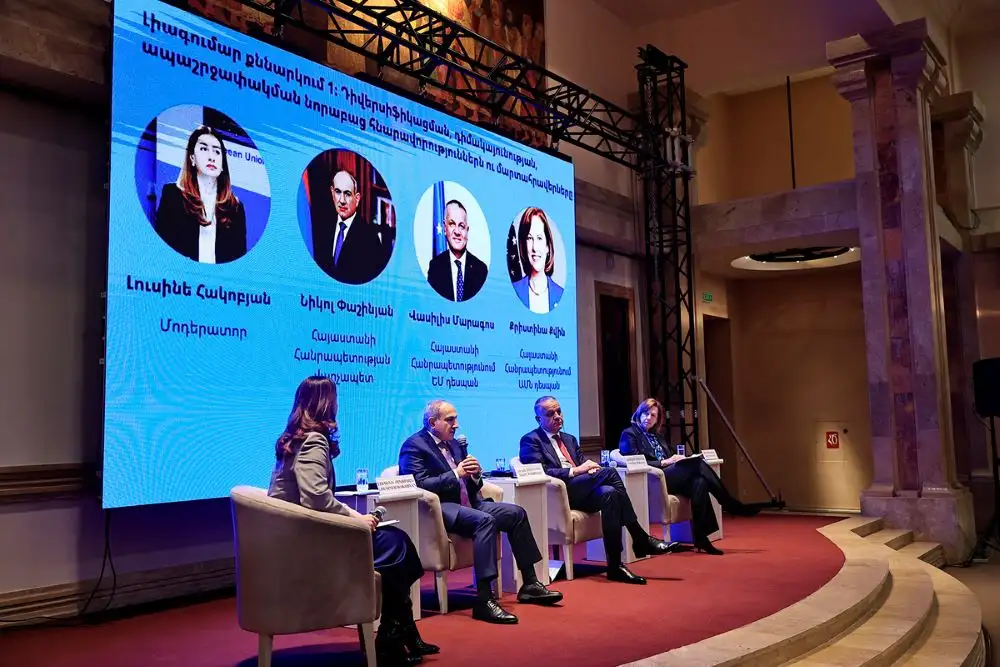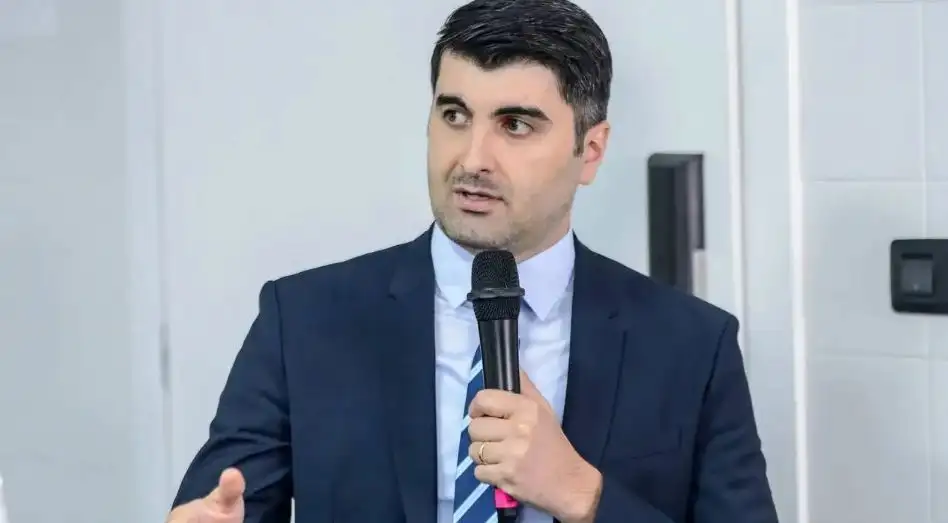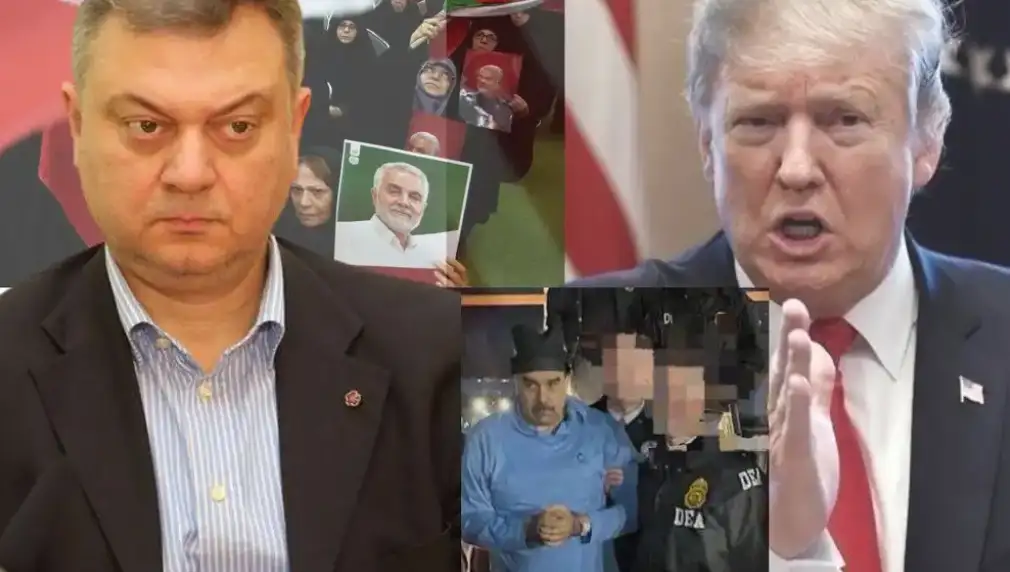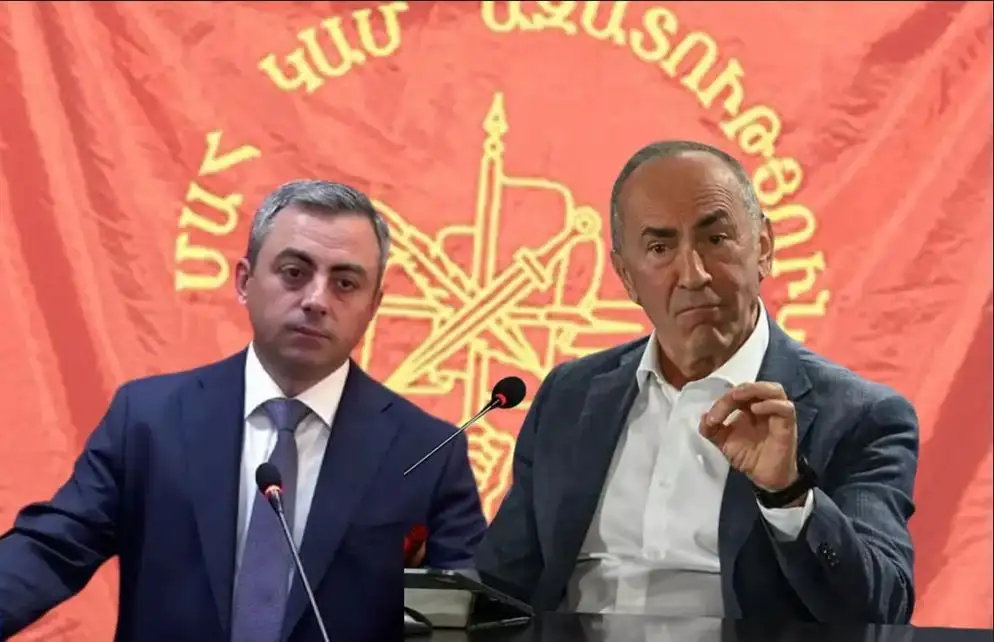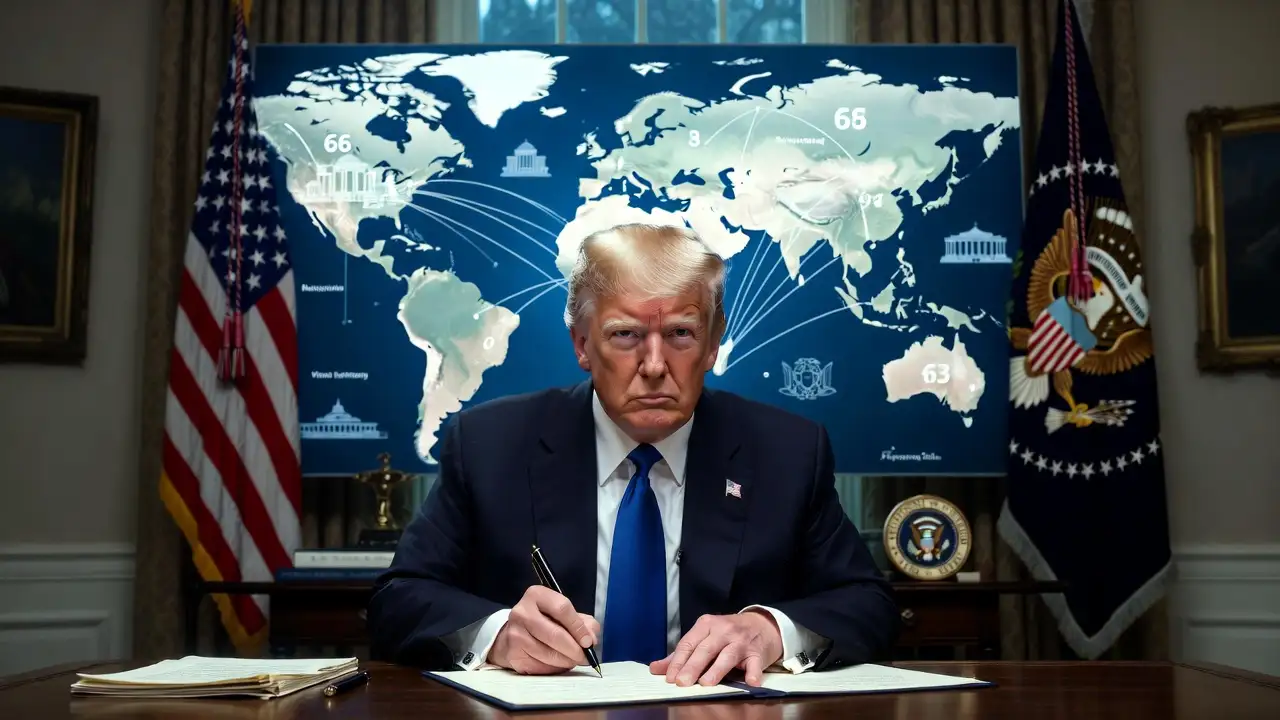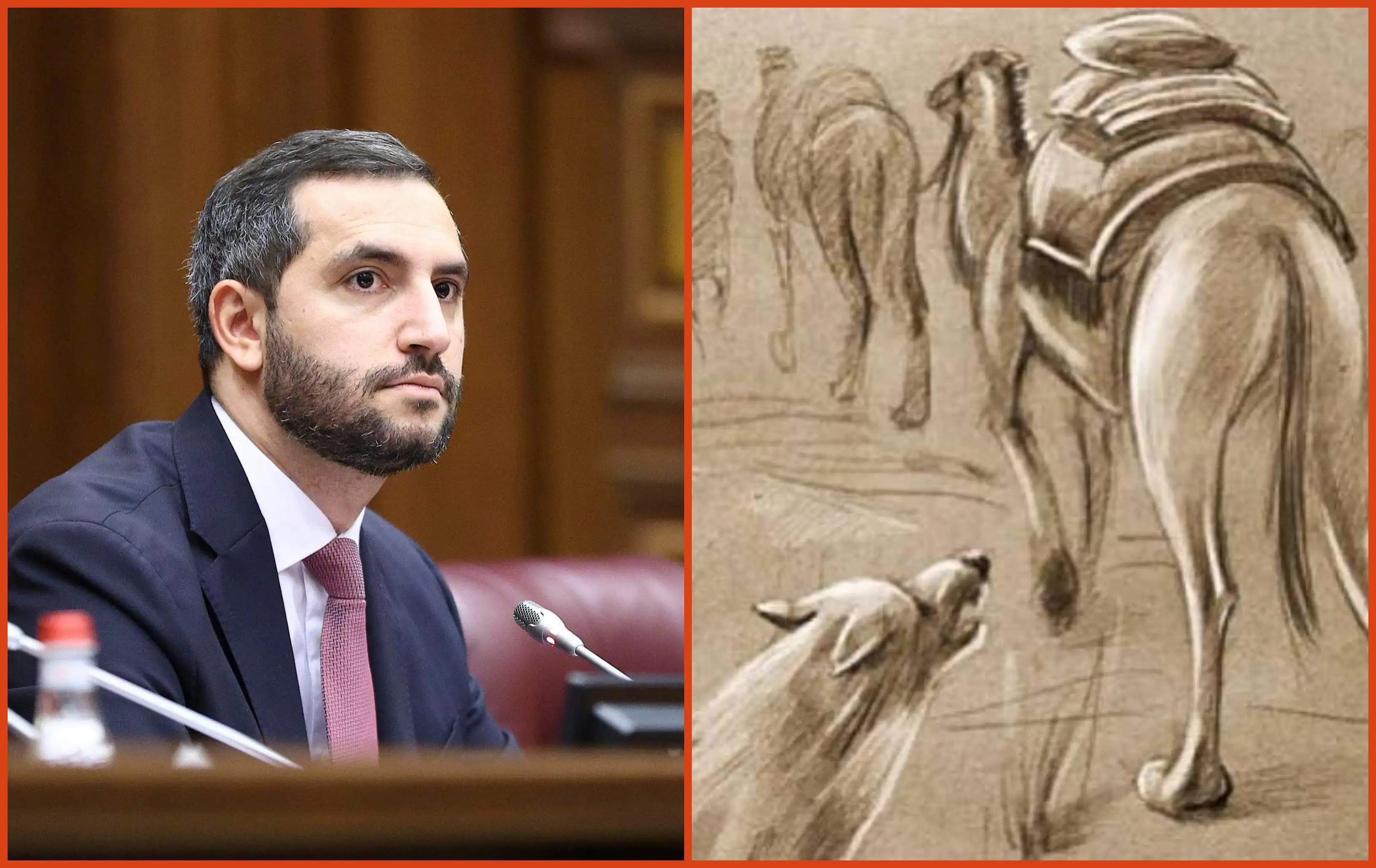RA Deputy Foreign Minister Vahe Gevorgyan spoke during the seventh ministerial meeting of the Forum of Ancient Civilizations.
"Dear Mr. Hossein Amir Abdullahi,
Dear Mr. Ezzatollah Zargami,
Your Excellencies, dear colleagues,
Participating in the seventh ministerial meeting of the Forum of Ancient Civilizations in Tehran is a great honor. Taking this opportunity, I would like to thank the Government of the Islamic Republic of Iran for the excellent organization of the forum, warm welcome, and hospitality.
I want to send my most sincere congratulations to the government and people of Iran on the occasion of Shab-E-Yalda. Yesterday, the cultural program organized by the Ministry of Cultural Heritage, Handicrafts, and Tourism of Iran gave us another opportunity to get acquainted with Iran's rich cultural heritage.
Armenia and Iran share deep-rooted traditions and cultural ties. One of the best examples is the Water Festival, known in Persian as Tirga and in Armenian as Vardavar. Since ancient times, such traditions have strengthened friendly ties between the two peoples.
Being in the homeland of the Behistun inscription, we recall what a significant role Iran played in the history of the region's ancient peoples. Carved more than two and a half millennia ago by order of Darius the Great, this trilingual inscription in Old Persian, Elamite, and Babylonian is a living testimony of the ancient history and culture of the Iranian people. It is also a linguistic and historical bridge that allows you to get to know the diverse cultural mosaic of the region. Notably, the name Armenia was mentioned for the first time in this historical document. Moreover, in the Babylonian section, our country was mentioned as Urartu, thereby emphasizing the unbreakable line and tradition of Urartu/Armenia. While in this ancient land, let us reflect on the lasting impact of this record, which honors a shared heritage and connects us with people near and far.
We highly appreciate Iran's unwavering commitment to protecting the cultural heritage of various peoples, including the Armenian cultural heritage. This commitment is particularly evident in preserving cultural sites in Iran, such as the Monastery of St. Thaddeus the Apostle, an Armenian church built in the 4th and 7th centuries and associated with the name of the apostle Thaddeus. The inclusion of the Armenian monastery complex of St. Thaddeus, St. Stepanos, and Dzordzor Chapel in the UNESCO World Heritage List, as well as the registration of the application "Pilgrimage of the Apostle St. Thaddeus Monastery" in the UNESCO Intangible Cultural Heritage List, combined with the government's support for the preservation of pilgrimage traditions, reflect Iran's important role in the preservation of Armenian cultural heritage outside the borders of the Republic of Armenia.
As a country with a Christian tradition and a border with Iran, Armenia proudly emphasizes the traditional and continuously developing Armenian-Iranian friendly relations as an example of mutual respect and intercultural dialogue anchored in protecting a thousand-year-old heritage.
Mr. President,
Armenia highly values the Forum of Ancient Civilizations as a critical platform for cultural dialogue and cooperation that can face the challenges of the global world. We are committed to supporting and contributing to collective efforts to strengthen intercultural dialogue, mutual understanding, and tolerance. This platform also provides a significant opportunity to review the progress of our cooperation in promoting historical and cultural heritage and highlight gaps in this regard.
Preserving humanity's tangible and intangible cultural heritage is essential in promoting effective policies aimed at peace, sustainable development, social cohesion, tolerance, combating discrimination, and strengthening human rights.
Armed conflicts in different corners of the world have a devastating effect on cultural and religious monuments. Improving data collection, implementing effective monitoring and evaluation mechanisms, promoting cooperation and information sharing, and using digital and satellite technologies and innovative solutions create an essential toolkit for protecting cultural heritage and preventing cultural vandalism.
In the Tiwanaku Declaration adopted on July 13, 2018, Forum members condemned that armed conflicts have severely threatened the integrity of World Heritage sites. As stated in the Baghdad Declaration of December 4, 2022, Member States share a deep concern for cultural property, including religious sites with destruction, robbery, and embezzlement.
Armenia believes that the Forum of Ancient Civilizations member states should make additional efforts to promote cooperation within the framework of leading international organizations, such as UNESCO. There is an untapped potential in popularizing the commonwealth of our ancient civilizations as the cultural heritage of humanity. Armenia is ready to implement joint initiatives with the forum members at UNESCO and other multilateral platforms.
Mr. President,
Unfortunately, the Armenian cultural heritage in Nagorno-Karabakh is currently subject to continuous destruction, desecration, and appropriation. The use of force by Azerbaijan in September 2023, which led to the ethnic cleansing of the entire indigenous population of Nagorno-Karabakh, further threatened the Armenian cultural heritage.
The state policy of deliberate destruction of cultural heritage objects and distortion of identity is a challenge not only for Armenia but for all of humanity. The seriousness of the situation demands that the international community make urgent efforts. In this regard, we support establishing an independent UNESCO expert mission in Nagorno-Karabakh, which Azerbaijan has been preventing until now.
With collective efforts and our unwavering dedication to the values of humanity, peace, and preservation of cultural heritage, we can significantly contribute to the conservation of endangered Armenian cultural heritage in Nagorno-Karabakh and surrounding areas.
In conclusion, I want to reaffirm Armenia's commitment to cooperation with partner countries of the Forum of Ancient Civilizations to jointly promote and protect our universal heritage, an irreplaceable value for all humanity, as a unique expression of history, identity, and cultural memory.
Thank you for your attention."




